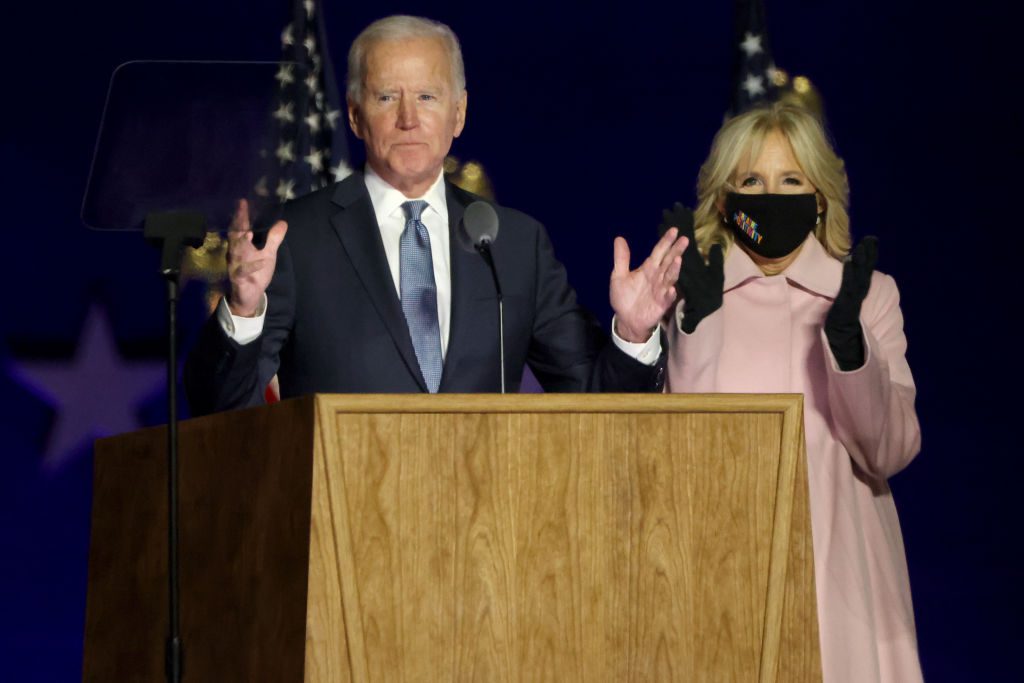Tony Blinken Shows Biden’s Premium On Loyalty

Antony Blinken, a veteran Washington foreign policy hand and longtime consigliere to the president-elect, will be nominated secretary of State this week, most major media are reporting.
Blinken previously served as deputy secretary of State and deputy national security advisor to then-President Barack Obama and national security advisor to then-Vice President Joe Biden. He has worked off-and-on for Biden in some capacity for decades, dating back to the president-elect’s marathon tenure in the U.S. Senate.
Blinken claimed territory as Biden’s chief foreign policy advisor early in his primary campaign for president, and never let go. He stayed notably close as Biden went from prohibitive front-runner to a forgotten man to then the comeback kid; Biden secured the nomination just as the planet began to shut down amid the Coronavirus catastrophe.
Blinken’s selection echoes other early choices by the president-elect. The future White House’s political staff is already chalk full of veterans of Bidenworld, including Ron Klain as chief of staff and Mike Donillon as senior counselor. A relatively newer face with the president-elect, 2020 campaign manager Jennifer O’Malley Dillion, has been tapped as deputy chief of staff.
But Blinken is the first loyalist whose installation requires Congressional consent.
Blinken’s nomination is seen as likely to succeed whether the Republicans triumph in Georgia in January — and hold the Senate — or not. The apparent naming of Blinken also comes as President Trump is technically contesting the election, while his campaign suffers legal defeat after legal defeat and his team of attorneys has been revealed to be in utter shambles. The blowout between the Trump and Biden teams means the transition process has not formally begun, though leading Republicans are increasingly cutting off Trump from further avenues of denial. Considered a hawkish centrist, the choice of Blinken is a relief to the American foreign policy establishment, as well as those in the GOP willing to turn the page. Top Republicans such as Sens. Mitt Romney and Marco Rubio have signaled they’ll play ball on nominees that are conventionally seen as mainstream.
Blinken beat out Sen. Chris Coons, from Biden’s home state of Delaware, who would likely have been confirmed, as well— senators are loath to sabotage the nominations of one of their own. Sen. Chris Murphy, of Connecticut, would have attracted the ire of Iran hawks.
The leadership of the interventionist Foundation for the Defense of Democracies hailed the choice of Blinken, as it attempts to persuade the incoming administration to toe the line on Iran; the outgoing Trump administration had a de facto regime change policy on Tehran. Susan Rice — who is controversial among Republicans, and was national security advisor under Obama, as well as runner-up to be Biden’s running mate — was again denied Foggy Bottom, as she was in 2012. Veteran State hand Nicholas Burns, who served George W. Bush (and Clinton) but has since crossed over more explicitly to Democratic circles, was also passed over.
America’s would-be top diplomat was trained in the family business. Blinken is the son of Donald M. Blinken, a titan in the investment banking business and President Bill Clinton’s man in Budapest; Blinken is also the nephew of Alan Blinken, Clinton’s ambassador to Belgium, and the husband of Evan Ryan, who served as an assistant secretary of State under Obama.
The putative support for Blinken from outfits such as FDD gives some foreign policy realists the willies. Former Trump national security advisor H.R. McMaster, now with the outfit, told CBS on Sunday that President Trump’s plotted withdrawal from Afghanistan was “abhorrent.” But the organization, officially non-partisan, heavily staffed the Trump administration and is unlikely to be nearly as welcome by Biden’s team. The organization was a leading antagonist of the Obama administration — and raised hackles over the 44th president’s nuclear deal with Iran, which Biden backed and has pledged to re-enter.
The Trump team is working hard in its waning days to tie Biden’s hands on Iran — unveiling a barrage of new sanctions and deepening its critique of the regime as terroristic. Saudi Arabia’s man in Turtle Bay, U.N. ambassador Abdallah Al-Mouallimi, told Fox News this weekend that Biden would not be “naive enough” to re-enter the old deal. Israeli Prime Minister Benjamin Netanyahu has said U.S. re-entry into the original agreement is unacceptable. In recent hours, he is said to have flown to Saudi Arabia to meet with Crown Prince Mohammed bin Salman, the most powerful man in Riyadh. If so, it is considered their first known meeting— an encounter made more palatable in the region by the Arab-Israeli normalization process pushed hard by the Trump administration.
The concern, for some, over Blinken is not that he is a wild-eyed radical. Rather, it is that his policy views are emblematic of a broader rot within the American establishment— an establishment which has closed ranks in recent days to oppose moves such as leaving Afghanistan. Blinken was among those in the Obama administration, including Secretary of State John Kerry, who advocated privately for ramped-up military action against Syrian strongman Bashar al-Assad. Obama, after considerable oscillation, eventually rejected such an enhanced policy during his second term. The decision was to the disappointment of those like Kerry— as well as Blinken, who would one day be named the next Democratic secretary of State. Blinken’s critics also note that he was staff director for the Senate Foreign Relations committee in 2002– when Biden was its chairman and the upper chamber, including the future president, assented to the Iraq War. Blinken’s devotees insist, however, that he seeks — as previous administrations have tried, and failed — to focus less on the Middle East and place U.S. attention squarely on China.
Comments